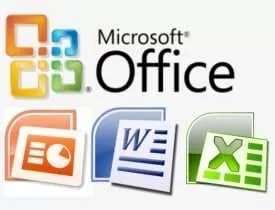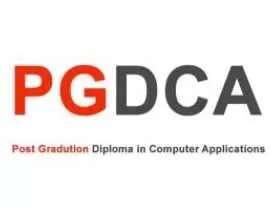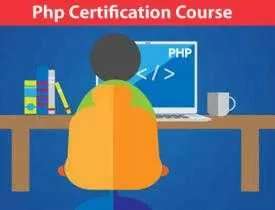Description
Course Name: Diploma in English Teacher Training
Course Id: DETT/Q001.
Education Qualification: 12th Pass.
Duration: 90 Hrs.
How You will Get Diploma Certificate:
Step 1- Select your Course for Certification.
Step 2- Click on Enroll Now.
Step 3- Proceed to Enroll Now.
Step 4- Fill Your Billing Details and Proceed to Pay.
Step 5- You Will be Redirected to Payment Gateway, Pay Course and Exam Fee by Following Options.
Card(Debit/Credit), Wallet, Paytm, Net banking, UPI and Google pay.
Step 6- After Payment You will receive Study Material on your email id.
Step 7- After Completion of Course Study give Online Examination.
Step 8- After Online Examination you will get Diploma Certificate soft copy(Scan Copy) and Hard Copy(Original With Seal and Sign).
Step 9- After Certification you will receive Prospect Job Opportunities as per your Interest Area.
Online Examination Detail:
- Duration- 120 minutes.
- No. of Questions- 60. (Multiple Choice Questions).
- 10 Questions from each module, each carry 10 marks.
- Maximum Marks- 600, Passing Marks- 40%.
- There is no negative marking in this module.
| How Students will be Graded: | ||
| S.No. | Marks | Grade |
| 1 | 91-100 | O (Outstanding) |
| 2 | 81-90 | A (Excellent) |
| 3 | 71-80 | A (Very Good) |
| 4 | 61-70 | B (Good) |
| 5 | 51-60 | C (Average) |
| 6 | 41-50 | P (Pass) |
| 7 | 0-40 | F (Fail) |
Benefits of Certification:
- Government Authorized Assessment Agency Certification.
- Certificate Valid for Lifetime.
- Lifetime Verification of Certificate.
- Free Job Assistance as per your Interest Area.
Syllabus
Diploma in English Teacher Training
Learners and teachers, and the teaching and learning context
Language analysis and awareness
Language skills: reading, listening, speaking and writing
Planning and resources for different teaching contexts
Developing teaching skills and professionalism
Trends in Critical Theories
Learners and teachers, and the teaching and learning context
Cultural, linguistic and educational backgrounds: understand the range of backgrounds and experiences that adult learners bring to their classes, Motivations for learning English as an adult: understand the different motivations and expectations that adults bring to learning English, identify ways in which personal factors may affect language learning, develop and maintain motivation, identify and respond to expectations, make practical use of this knowledge and understanding to plan and teach with sensitivity, Learning and teaching preferences: demonstrate an awareness of the different roles teachers may adopt at different stages of teaching and in different teaching/ learning contexts, demonstrate an awareness of the different learning preferences that adults bring to learning English, Context for learning and teaching English: understand in broad terms the context in which teaching is taking place with special reference to the learners, the physical or online environment and the availability of resources.
Language analysis and awareness
Basic concepts and terminology used in ELT to discuss language form and use: understand key terminology used in ELT to talk about language and apply this terminology to planning and teaching, Grammatical frameworks: rules and conventions relating to words, sentences, paragraphs and texts: understand a range of the rules and conventions relating to words, sentences, paragraphs and texts, demonstrate a basic working knowledge of how the verb phrase and the noun phrase are formed and used in English, for example: modality, including the expression of hypothetical meaning, The practical significance of similarities and differences between languages, identify some significant differences between their own language and a foreign language, and demonstrate in practice their understanding of the relevance of some of these differences for the teacher and learner, use a range of reference material to analyse and describe language for teaching purposes, use strategies, approaches and techniques to develop learners’ language knowledge, for example inductive and deductive presentations, Key strategies and approaches for developing learners’ language knowledge, Reference materials for language awareness.
Language skills: reading, listening, speaking and writing
Basic concepts and terminology used for describing reading skills: understand basic concepts and terminology used for describing reading skills, and applies this to planning and teaching, Purposes of reading: understand how approaches to reading texts vary depending on the purpose of reading, and make practical use of this in teaching, identify some of the features which help learners decode meanings of words, sentences and whole texts, and make practical use of this in teaching, Decoding meaning, Potential barriers to reading: identify some of the difficulties learners may face when trying to understand texts, understand basic concepts and terminology used for describing listening skills, and apply this to practical teaching, understand basic concepts and terminology used for describing speaking skills, and apply this to practical teaching, use strategies, approaches and techniques to develop learners’ receptive and productive skills.
Planning and resources for different teaching contexts
Principles of planning for effective teaching of adult learners of English, distinguish between different kinds of teaching and different kinds of lessons, and select the kinds of lessons that are most appropriate for particular learners,. Understand the purpose and principles of planning for effective teaching of adult learners, Lesson planning for effective teaching of adult learners of English: . plan logically sequenced lessons that are appropriate to the needs of the learners, evaluate their own lesson preparation before and after teaching through reflection and by taking note of comments from tutors, colleagues and learners, understand the need for and begin to put into practice.
Developing teaching skills and professionalism
The effective organisation of the classroom: arrange the classroom to suit the learners and the type of lesson, and ensure safety regulations are taken into account, establish and maintain a good rapport with learners at all times and foster a constructive learning atmosphere, use their own English language skills and L1 where appropriate to enhance the effectiveness of their teaching, make appropriate use of a range of materials and resources, including digital, in relation to specified aims, work successfully with learners at different levels, using appropriate types of classroom activity to develop learners’ language and skills, monitor learner behaviours in class time and respond appropriately.
Trends in Critical Theories
Literature Teaching – Syllabus, Methods, Materials and Approaches: Literature Teaching in India – Historical Perspectives and Application of Theories, Exploiting Linguistic and Stylistic Features of Literary Texts for Developing Literary Sensibility, Formulating Strategies, Methods and Techniques for Teaching Literature, Workshop – Planning and Teaching of Literary Texts at H.S. and Degree Levels, Testing of Literature: Modification and Innovation in Testing and Question Framing, Review of the existing patterns of Testing Literature at Tertiary levels, Evaluation and Marking Criteria, Workshop – Test Framing and Trialing.






